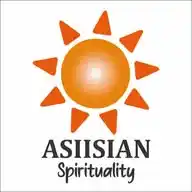
Asiisian Spirituality
February 9, 2025 at 11:32 PM
*Morality: A Natural Law, Not a Religious Doctrine*
The greatest lie ever told was that morality comes from religion. This deception has made people believe that without religious laws, humans would be wicked. But morality does not come from commandments it comes from understanding *consequences*.
The origin of humanity is the origin of morality. Long before religion, human beings lived by natural law. Morality was not about avoiding hellfire; it was about the cause and effect of our actions.
In Kalenjin culture, morality was rooted in a *value system*, not a *belief system*. We lived by principles that governed actions and their consequences. This was known as *Ng’ooki* the natural law of cause and effect.
- If you betray trust, you lose business and destroy relationships.
- If you steal, you create conflict and become an outcast.
- If you mistreat others, you isolate yourself and invite misfortune.
This was not a morality based on *fear* but on *awareness*. Ng’ooki ensured that every action had a consequence. It was not about sin and forgiveness; it was about responsibility.
You do not escape consequences because someone "paid for your sins." That is a foreign lie meant to absolve people of accountability. *There is no forgiveness from the universe only cause and effect.* You might not face the consequences today, but they will come, whether in this generation or the next.
Religious morality is artificial. It creates people who behave well only out of fear of punishment, not because they truly understand the impact of their actions. It does not produce genuine human beings. It produces *hypocrites*.
That is why religious people often commit the very sins they preach against. They believe they can always be forgiven, so they have no real reason to change.
A *value system*.produces people who are moral because they understand *why* they must be moral. A *belief system* produces people who follow rules only because they fear hell. Which one creates a better society?
Good societies domesticate their children based on *value systems, not belief systems*. In our culture, *Kipgaa*, we had:
- **Konyit** (respect)
- **Kikirei** (taboos)
- **Etanutiik** (prohibitions)
- **Ng’ooki** (actions and consequences)
These were the **pillars of moral life**. Children did not avoid wrongdoing because of religious guilt; they avoided it because they understood its effects on their community and their future.
Today, however, Africans have abandoned their *value systems* and adopted *religious belief systems* that promote blind obedience rather than conscious awareness. As a result, we have lost our moral compass. The consequences of this shift are devastating:
- *Rampant corruption*: When people believe they can sin all week and be forgiven on Sunday, morality becomes a performance.
Leaders steal without shame because they think repentance erases consequences. But **Ng’ooki** teaches that every stolen coin has a price it will return as sickness, misfortune, or destruction in their lineage.
- *Widespread dishonesty*: People have become comfortable with lies because religion has taught them that truth is only important in the eyes of God, not in human relationships. Business deals collapse, friendships erode, and communities weaken because trust has been replaced with deception.
- *Moral confusion*: A society ruled by religious belief rather than natural consequence produces people who do not understand the real impact of their actions. They fast for blessings but cheat in business. They pray for wealth but refuse to work with integrity. They condemn immorality while secretly indulging in it.
- *Loss of personal responsibility*: When morality is tied to forgiveness, people refuse to take responsibility for their actions. Instead of facing the consequences, they blame the devil, claim they were tempted, or expect divine mercy to erase their wrongs. But *Ng’ooki* does not care for excuses it only responds to actions.
A **hypocritical society** is a broken society. People wear the mask of morality but act without integrity. They look holy in public but lack honor in private. They speak of righteousness but live in contradiction. Such a society cannot thrive.
The only path forward is to *return to our value systems*. To raise children who understand morality not because they fear punishment, but because they recognize the power of their actions. To rebuild a society where truth, respect, and accountability are not just preached but *practiced*.
For in the end, *Ng’ooki remains undefeated* every action has a consequence. The universe does not care for who "paid for your sins." It only delivers what you have sown.